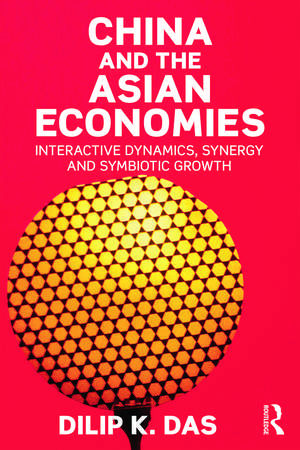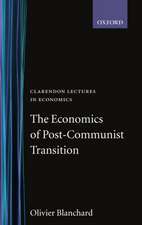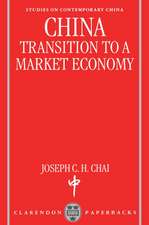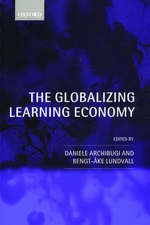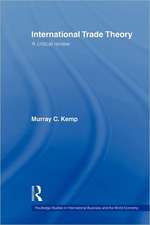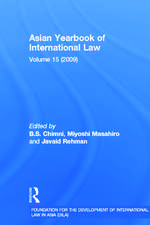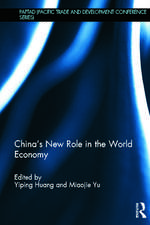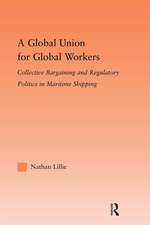China and the Asian Economies: Interactive Dynamics, Synergy and Symbiotic Growth
Autor Dilip Dasen Limba Engleză Paperback – 13 dec 2013
Written in a clear, comprehensive and critical manner by a world class expert in the field, this book brings together the contemporary academic and policy debates on the issues under examination. As such it is an essential read for students and scholars of economics, international political economy and Asian Studies as well as MBA students.
Preț: 236.73 lei
Preț vechi: 402.80 lei
-41% Nou
Puncte Express: 355
Preț estimativ în valută:
45.30€ • 47.41$ • 37.70£
45.30€ • 47.41$ • 37.70£
Carte tipărită la comandă
Livrare economică 31 martie-14 aprilie
Preluare comenzi: 021 569.72.76
Specificații
ISBN-13: 9780415723534
ISBN-10: 0415723531
Pagini: 272
Ilustrații: 12 b/w images, 17 tables and 12 line drawings
Dimensiuni: 174 x 246 x 20 mm
Greutate: 0.54 kg
Ediția:New.
Editura: Taylor & Francis
Colecția Routledge
Locul publicării:Oxford, United Kingdom
ISBN-10: 0415723531
Pagini: 272
Ilustrații: 12 b/w images, 17 tables and 12 line drawings
Dimensiuni: 174 x 246 x 20 mm
Greutate: 0.54 kg
Ediția:New.
Editura: Taylor & Francis
Colecția Routledge
Locul publicării:Oxford, United Kingdom
Public țintă
Postgraduate and UndergraduateCuprins
Preface Prologue 1. Emergence of Asia and Integration of China 2. Launching Economic Transition in China 3. Economic Growth in the Chinese Economy: An Ex-Post Perspective 4. Contemporary State of the Chinese Economy and On-Going Transition to a New Growth Trajectory 5. Evolving Pattern of De Facto Integration Between Asia and China 6. From Market-Led to Institution-Led Regional Integration in Asia 7. Maturing Regional Economic Architecture in Asia
Recenzii
‘This is a marvelously insightful book, telling the story of Asia’s modern emergence as the engine of global economic growth. Professor Das describes the economic rise of the Newly Industrializing Economies, the dynamic Asia, and the flow-on to China as these countries come to dominate the world economic scene. We are moved smoothly through the success of the real economies, and guided to understand the challenges for them from the operations of financial markets where matters are more fragile. Professor Das’ splendid book brings the reader up to the minute with its analysis and lays solid foundations for our understanding of the future for China and the Asian Economies.’
– Christopher M. Adam, Professor of Finance and Associate Dean, Australian School of Business, The University of New South Wales, Australia
'This book is essential reading for anyone interested in the future of Asian economies, their interdependence, their impact on world business and China's role in particular now it has a new leadership team likely to deepen its reforms. Das's book on this important theme vis-a-vis 21st century Asia is not only informative and incisive but also highly readable. It deserves to be widely read by both academics and students, as well as policy-makers.’
– Malcolm Warner, Professor and Fellow Emeritus, Wolfson College and Judge Business School, University of Cambridge, Co-Editor, Asia Pacific Business Review.
‘The global economy is on the cusp of a mega transformation, and the dynamic economies of Asia are its epicenter. They have become the driving force of the global economy. Professor Dilip Das, demonstrates that a China-centric economic structure has already evolved in the region, but that it is still in the process of maturation. He has empirically studied the de facto and de jure interactive dynamics of the region, and discussed the symbiotic growth pattern that has developed. In this very readable work, he demonstrates the positive interactive influences that have favorably affected industrialization, modernization and growth among the dynamic Asian economies. The result is an eminently readable book which brings together the ongoing contemporary academic and policy debates. It will make a great week-end read in front of a crackling fire, but the insights gained will outlast the decade.’
– Dr. John E. Endicott, Vice Chancellor and President Woosong University, SolBridge International School of Business, The Republic of Korea
– Christopher M. Adam, Professor of Finance and Associate Dean, Australian School of Business, The University of New South Wales, Australia
'This book is essential reading for anyone interested in the future of Asian economies, their interdependence, their impact on world business and China's role in particular now it has a new leadership team likely to deepen its reforms. Das's book on this important theme vis-a-vis 21st century Asia is not only informative and incisive but also highly readable. It deserves to be widely read by both academics and students, as well as policy-makers.’
– Malcolm Warner, Professor and Fellow Emeritus, Wolfson College and Judge Business School, University of Cambridge, Co-Editor, Asia Pacific Business Review.
‘The global economy is on the cusp of a mega transformation, and the dynamic economies of Asia are its epicenter. They have become the driving force of the global economy. Professor Dilip Das, demonstrates that a China-centric economic structure has already evolved in the region, but that it is still in the process of maturation. He has empirically studied the de facto and de jure interactive dynamics of the region, and discussed the symbiotic growth pattern that has developed. In this very readable work, he demonstrates the positive interactive influences that have favorably affected industrialization, modernization and growth among the dynamic Asian economies. The result is an eminently readable book which brings together the ongoing contemporary academic and policy debates. It will make a great week-end read in front of a crackling fire, but the insights gained will outlast the decade.’
– Dr. John E. Endicott, Vice Chancellor and President Woosong University, SolBridge International School of Business, The Republic of Korea
Descriere
This book analyzes the emergence of Asian economies, followed by China, as an economic growth pole of enormous significance. Notwithstanding the diversity in the region, rapid growth was instrumental in integrating the Asian economies initially in a market-led manner and this book explores the interactive dynamics and the process of integration in the region. Written in a clear, comprehensive and critical manner, this book brings together the contemporary academic and policy debates on the issues under examination. As such it is an essential read for students and scholars of economics, international political economy and Asian Studies as well as MBA students.
